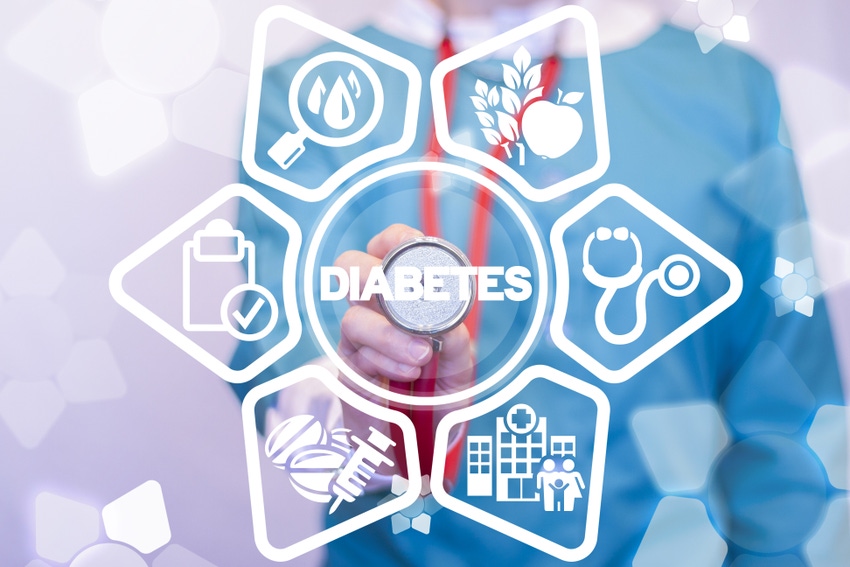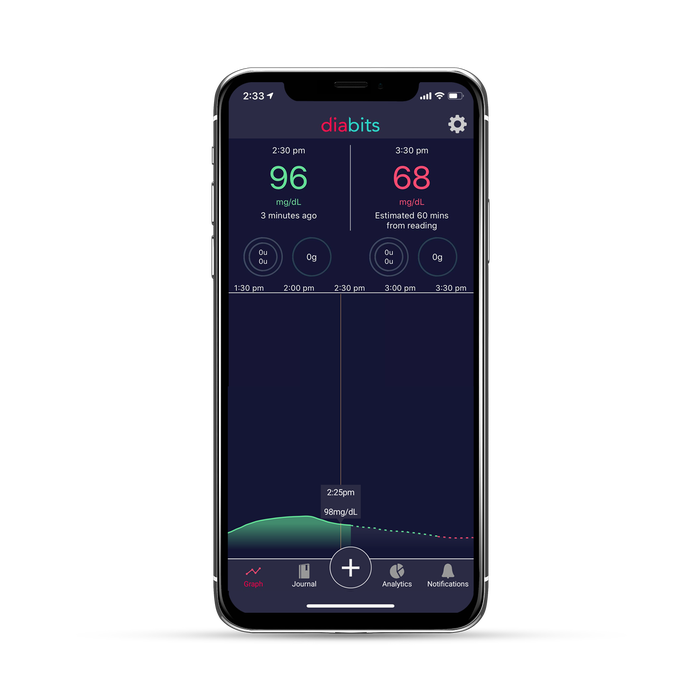New App Predicts Blood Glucose Levels 60 Minutes into the Future
Bio Conscious Technologies says its AI-powered Diabits app is capable of predicting blood glucose levels an hour into the future, an improvement on industry-leading continuous glucose monitoring systems that offer 20-minute predictions.
June 9, 2020

There's a new, AI-powered diabetes app that claims to accurately predict blood glucose levels sooner than the industry-leading continuous glucose monitoring (CGM) systems, which currently tout 20-minute glucose value prediction capabilities.
Bio Conscious Technologies said an in-house silico study of its Diabits AI algorithm demonstrated its ability to provide 60-minute blood glucose value predictions. The Vancouver, British Columbia-based company says the app is designed for people with diabetes who use a CGM to monitor their daily blood sugar fluctuations.
“The ability to accurately predict glucose levels with the Diabits app helps users improve blood sugar management by increasing the time that they have to react. This enables proactive management of highs and lows to help them stay within a healthy glucose range for a longer time during the day and ultimately keep them healthier,” said Amir Hayeri, CEO of Bio Conscious Technologies. “Additionally, this information could be transmitted to a pump or a smart insulin pen to calculate the precise amount of insulin needed and the optimal time for injection. This can further minimize fluctuations and excursions beyond recommended glucose range.” 
Details of Bio Conscious Technologies' Study
The in-house study used the Padova simulator provided by the Epsilon Group, included 30 virtual patients, and measured the predictive accuracy of the Diabits algorithm. Each virtual patient was entirely unique, and represented a possible profile of a real Diabits user's glucose metabolism, the company said.
The subjects were studied in four cohorts representing four distinct populations: adults with mixed hypoglycemia awareness, adults with impaired hypoglycemia awareness, pediatric patients with mixed hypoglycemia awareness, and pediatric patients with impaired hypoglycemia awareness. Patients also had simulated behaviors related to diabetes management such as a randomized meal and insulin schedule based on the patient’s weight, age, and amount of insulin necessary based on carbs consumed. For each patient, a total of 360 days of blood glucose behavior was simulated and insulin-on-board and carbs-on-board information were recorded.
Two different blood sugar prediction models were trained and tested for each patient. The first model, Production, is the algorithm which is used in Diabits today. The second model, ICE, is a more advanced version of Production which puts a more substantial weight on food, insulin, and exercise information. The results of the simulation showed that, in general, while the Production model is highly accurate, the ICE model will slightly outperform the Production model in most cases. As a result of this study, the ICE model was implemented into Diabits. Today, if a user inputs food or insulin information, the ICE model will be automatically selected and used for that user’s predictions. If a user does not input this additional information, the Production model is automatically selected.
Bio Conscious said it will release more detailed study results and data during the upcoming virtual meeting of the American Diabetes Association, which kicks off on Friday.
About the Author(s)
You May Also Like




